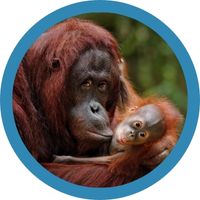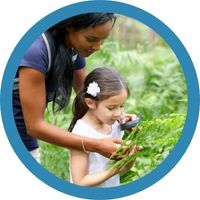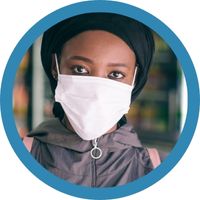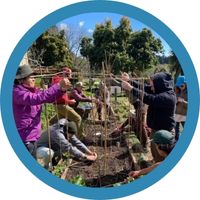Why is citizen science important? Not only does it allow communities to play a role in advancing scientific knowledge, it empowers individuals of all ages to make meaningful observations and learn about their natural environments. BSCS Science Learning’s interactive platform called FieldScope is transforming the way educators, community members, and organizations engage in citizen science.
With FieldScope, teachers and students can participate in a variety of projects ranging from supporting amphibian conservation by reporting on calls of local frogs and toads to monitoring plants in their own school gardens. Participants conveniently upload to a shared project database the measurements, observations, and media they gather outdoors. Project organizers and community participants can then leverage sophisticated graphing and mapping visualization tools to gain broader perspectives on the environment.
FieldScope is freely available to educators, students, and community members who wish to participate in existing projects or launch new ones.
This resource is funded in part by Gordon and Betty Moore Foundation.

This material is based upon work supported by the National Science Foundation under Grant No. DRL-1503005. Any opinions, findings, and conclusions or recommendations expressed in this material are those of the author(s) and do not necessarily reflect the views of the National Science Foundation.
Making Waves with Radio is a suite of museum activities, apps, and camp curricula, for engaging educators, youth, and public audiences about radio technologies.
How can educators support awareness and better understanding of the critical role and uses of radio frequency communications in our lives and in society?
The Making Waves with Radio project provides a suite of museum activities, apps, camp curricula, and mobile online professional learning for educators who work with youth, families, and public audiences.
These activities are created using a codesign development approach to support nimble, mobile informal education, while incorporating the best aspects of phenomenon-based and hands-on learning.
Educator resources include hands-on activities, facilitator guides, training videos, digital apps, and other mobile online professional learning, all of which will be easily accessed and adapted to engage youth and the public about radio frequency communications. Different resources can be used as standalone activities or as bundles to reach children and families in museum settings, community workshops, and/or other informal learning environments.
All materials have been released under an open-source license and are free to use.
This material is based upon work supported by the National Science Foundation under Grant Number DRL 2053160. Any opinions, findings, and conclusions or recommendations expressed in this material are those of the author(s) and do not necessarily reflect the view of the National Science Foundation.
Do you teach geography, environmental science, or similar classes?
Try these free resources in your classroom today!

OpenSciEd Middle School
Freely available units on plate tectonics, natural hazards, ecosystems and biodiversity, climate change, and more.

Invitations to Inquiry with FieldScope
These 2-4 day lessons, using citizen and community science data sets and the FieldScope platform, aim to support middle and high school students in working with real-world data. Topics include invasive species, species range, light pollution, plastic pollution, plant phenology, water quality, and healthy streams and rivers.
Other programs you may like:

FieldScope and Citizen Science
The FieldScope platform allows for interactive mapping and graphing citizen and community science data (upper elementary to high school).

COVID-19 and Health Equity
These units focus on the social and scientific aspects of the COVID-19 virus (all levels).

Engineering in the Garden
This is a garden-based engineering unit in which students design trellises to support pea plants. Students consider how to design and build trellises that will stay stable and support peas as they climb (elementary).